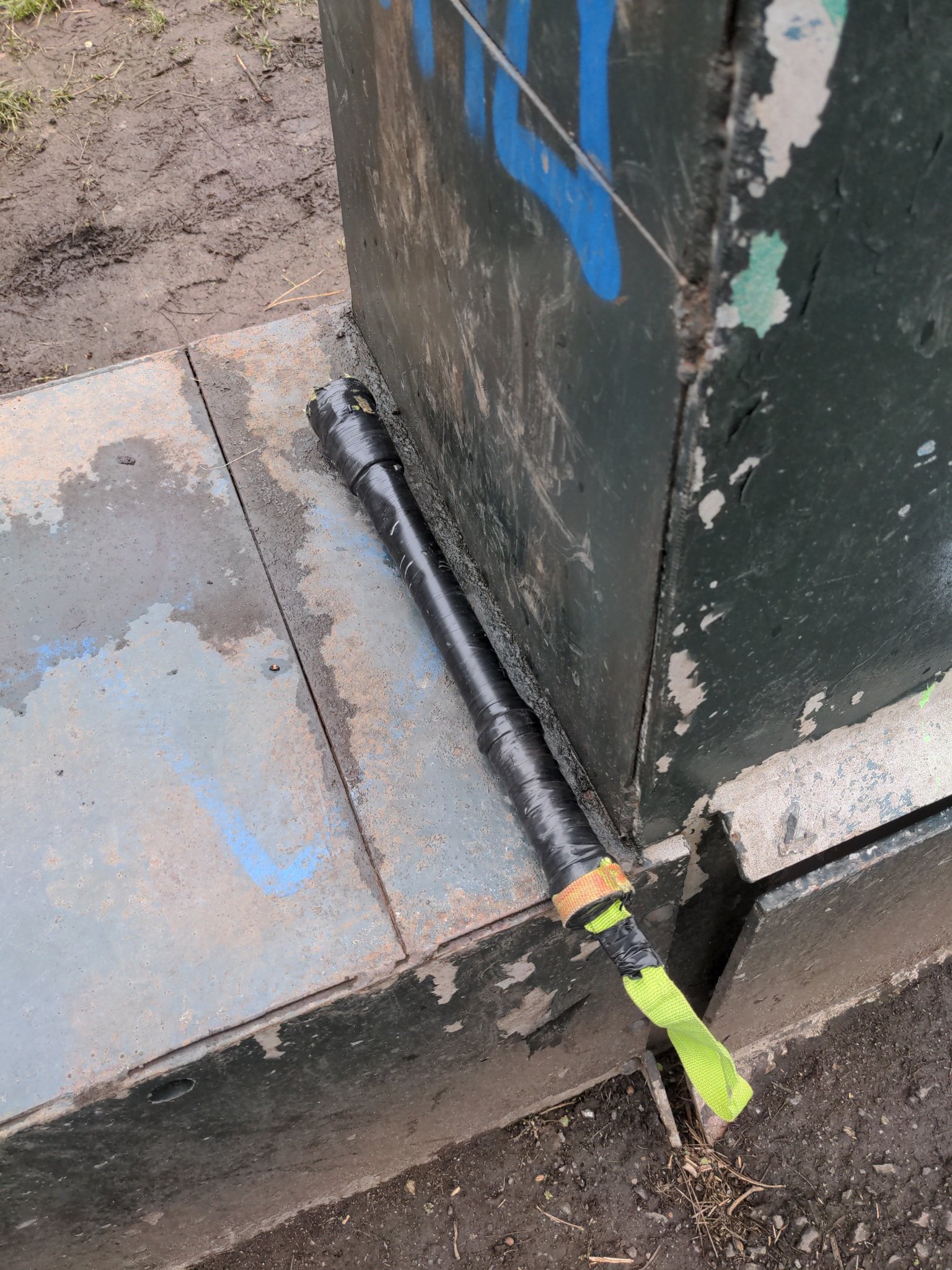Improvised Weapons and Bad Weapons
Hypothesis: most crunchy RPG combat systems want good weapons to be always better than bad weapons. They want the character’s martial skill and class to dictate their effectiveness at using weapons more than the situation does.
As a result weapons that cost more money are better, and weapons that you are trained in are more effective. This is a concession to the rules engine that powers the game.
This means that when your party are attacked in the middle of the night by wolves, the fighter can do 1d8 damage with their sword. They’re quite likely to hit because this is what they’re good at. Meanwhile, the wizard who can’t cast a spell because they’re not fully rested is crap at this. They’ve got a staff and not much else. They can swing it and it’ll be a bit rubbish, like a d4 or something. This makes sense. The wizard grabs a flaming branch from the fire to attack the wolves with. Is this better at driving away and hurting the wolves than the fighter’s longsword?
Answer this question for the game you usually use for playing wizards and fighters using the rules as written.
If you’re playing a big name fantasy game, the wizard probably gets a significant negative penalty to their roll, and rubbish damage, or some sort of handwaving ‘the GM decides’ solution. You’re trying to do something the rules don’t actually tell you how to do, or penalise as automatically worse than just using the staff. This means the outcome of this is entirely about your table’s ability to cope with making your own game outside the rules, or telling the wizard to calm down and use their staff like the game wants them to. There’s a weapon you’re supposed to use which is good, and one you’re not which is bad.
Is it the game’s job to tell you how to handle this? Is it the game’s job to tell you how to decide this? Definitely not. There are games I love that completely ignore this and expect you to solve it for your table.
On the other hand, If you’re a new GM and the game just says “it’s up to the GM to decide”, what do you do? I think a lot of new GMs wouldn’t know what to do with this. They’d play by the rules, and they wouldn’t be wrong to do so. Why should they honour this scheme that goes against the rules? I’d say it is to honour and nurture player skill. This is creativity, it’s narrative, problem-solving, roleplaying. It’s lots of the characteristics that makes someone a good presence at the table.
Anyway, lots of experienced GMs would recognise this as fine and have their own decision making processes to deal with it. Can we break that down into some sort of framework? Perhaps a medley of ideas. A bit like a buffet in that you can choose what you like and ignore what you don’t.
Simulation
You can think about what’s realistic. Is the wizard combat-trained? How strong is the wizard? How long is the branch? How heavy is it? How on fire is it? How far is it from the campfire to the wolves who see it coming? Let’s decide on a modifier for each and do maths and decide this is d100 where you need to roll under the wizard’s combined strength + intelligence + the length of the branch in feet – the number of wolves they’re attacking or something. Oh wait, you mumble a spell to make the flame brighter? Add 5 to the target number.
The things about this is it isn’t fun to spend ages resolving such a simple action and making up numers for all these things. Unless you all think it is, in which case have at it. You can probably find a game that’s extremely good at this in the sense it’s very detailed. We shall not speak its name here.
Is it even an attack?
A quick way to ditch the rules that are in the way is to use some others you already have lying around. Is this an intimidation check of some sort? Sure. Do we let the wizard use their intelligence stat for it because its an intelligent solution? Why the hell not. If the rogue did it would you do it differently? Yeah, they can use their agility.
This is fast, it lets the character play to their specific strengths. It’s almost as if this standard d20/2d6 stuff we see was designed to be flexible. Your book probably says this somewhere near the beginning and then never again. I wish more rules sections said “or not, this book is not your dad.” throughout.
Group dynamic
The fighter’s play is miffed. They’re a level 4 fighter and they worked really hard on this character build, browsing forums and blog posts to make their abilities work together so they could really mince up wolves like this. And now that attention-seeking clownshoe playing the wizard is on their bullshit again. Play the game we’re playing and stop making shit up.
Anything we say about rules or system happens in a vacuum that makes it virtually useless in the absence of the people playing the game filling the vacuum with their disgusting breathing. Whatever you decide it should work for your table specifically. You might need to have a grown up conversation.
Dice chain
This is what I actually do and it borrows from all of the above. If the wizard attacking with their staff would be a d4, move it up to a d6. If the fighter with a d8 sword does it, move it up to a d10. If you think a creative solution is absolute genius, move it up two steps.
To be clear it looks like this:
D4 -> D6 -> D8 -> D10 -> D12 -> D20
Or with a little motivated dice purchasing you can easily achieve:
D2 -> D3 -> D4 -> D5 -> D6 -> D7 – D8 -> D10 -> D12 -> D14 -> D16 -> D20 -> D24 -> D30.
If you try hard you can go beyond this.
Dice chains are quick ways of adjusting the potentcy of all kinds of things without maths. +1 dagger? Nah, D5 dagger instead of D4. They let you simulate a lot if you want to. Go up one or down one for each factor that influences the roll. They’re an excellent system to have lying around for all kinds of things but too few games have them in their toolbox.
Right, ramble over. Sound off in the comments if you want to. There’s definitely a lot more to be said and we’re sure we’re going to hear about how your favourite game does this.


2 Comments
Join the discussion and tell us your opinion.
I LOVE the idea of having a d5, d7, d9 and d13 at the table just to reward PCs with a cheeky bonus to their normal die for creative play. Great article
It is weird that we treat expensive (or more often, bigger) weapons as better. My first thought was the sling. Most systems treat it like the child’s ranged weapon, but (highly trained) Roman slings were comparable to a .44 caliber pistol. So maybe weapons that are difficult to learn step down the dice chain, “expensive” ones step up once or twice more, and easy weapons (heavy stick, pointy stick, heavy rock) don’t move. That way, an all-purpose Fighter might always roll 1d10 for sword, while the bookish wizard fumbles at a 1d6.
This might work for a system like Into the Odd, where damage caps at 12 and thus the dice sizes matter a lot. And because it’s a way to remake the “fighter > wizard” dynamic without to-hit rolls. Is it better, now that you might need to stratify weapons by lethality and ease of access? Probably not.
Anyway, this is a great article. I second Chris.